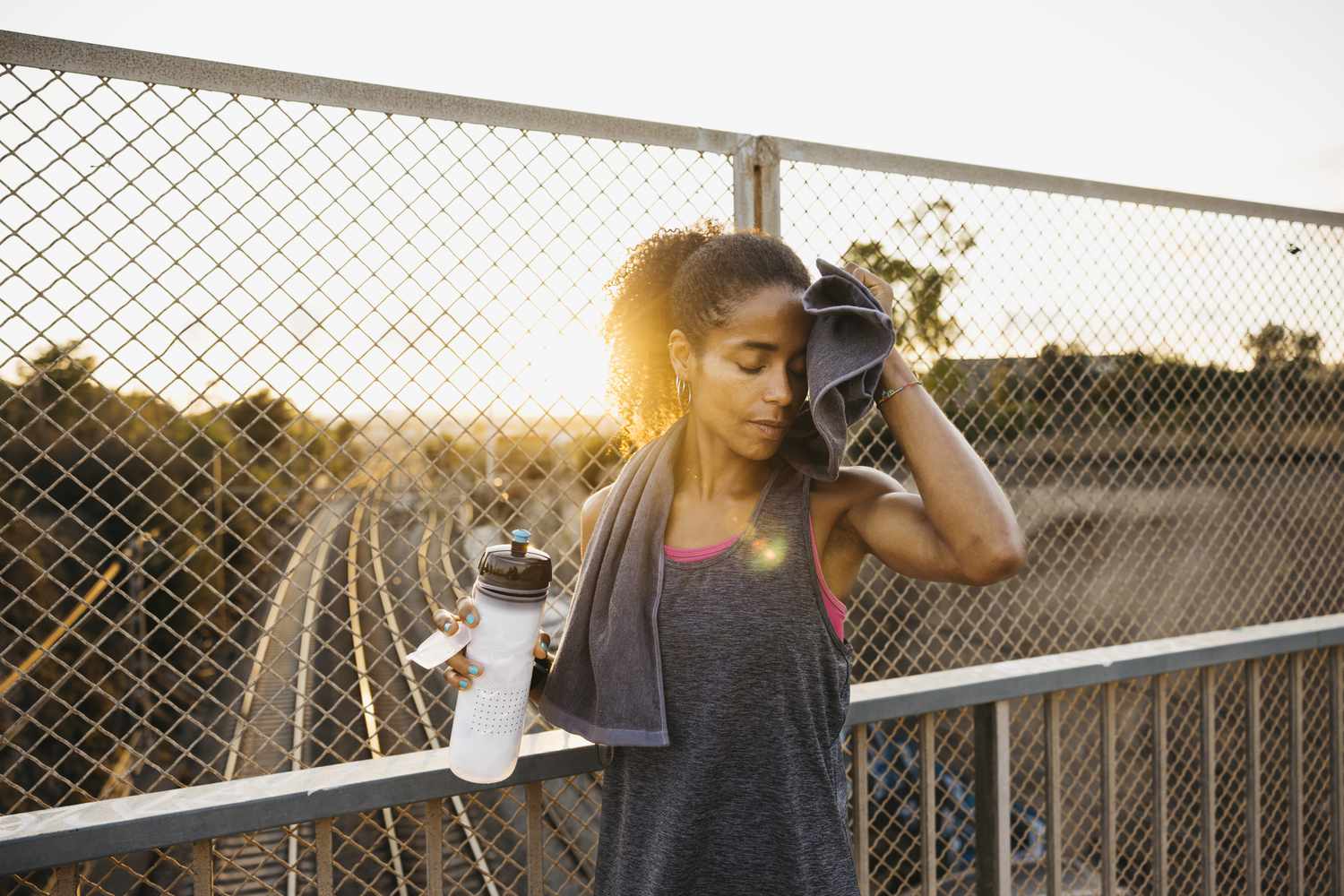Recognizing Dehydration: Essential Information You Should Know

We see the headlines: “Heatwave Sweeping the Nation” and “Temps Expected to be Even Higher This Summer.” There seems to be no escaping the fact that we’re in for consistently hot weather this season. On the one hand, that could make this summer your hottest hot girl summer—on the other hand, that means there’s the ever-present risk of dehydration.
When it’s hot and humid outside, we lose water through our skin, but also through our lungs, kidneys, and digestive tract. Dehydration happens when the water we’re losing outpaces the fluids we’re replacing.
Clearly, dehydration isn’t a good thing, but how concerned do you really need to be about it? Here's what you need to know about the signs of dehydration, how to prevent it, and when to get medical attention.
The signs and symptoms of dehydration span a wide range of bodily systems because water is key to optimal functioning. For this reason, dehydration can cause a wide range of symptoms, even some you may never associate with a lack of water. Here's what you may experience if you're dehydrated.
Staying hydrated not only helps your body perform at its best, it also helps prevent serious complications. Here's exactly what to do to keep your body adequately hydrated this summer.
Remember that old adage — drink eight 8-ounce glasses of water a day? Well, it's not nearly enough to stay hydrated in the heat, especially when you’re active.
The Dietary Reference Intakes (DRI) for water, set by the National Academies of Sciences, for adults ages 19 to 70, is about 9 cups of water for women and about 13 cups for men. And while that’s great for baseline hydration, says Jones, if you add activity, work (like construction or landscaping), or time spent outside to the mix, the fluids lost through sweat must also be replaced.
While it's hard to give a precise recommendation for how much to drink, some experts recommend drinking one ounce of fluid per pound of body weight per day. You can also look at your urine color. If it's dark yellow, you need more fluid. If it's pale yellow or clear, that's a sign you're well-hydrated.
While essential to human life, sodium and carbohydrates are commonly restricted. This might be fine in the fall when it’s cool, but not during what is expected to be one of the sweatiest summers on record.
Jones says we need 1500 milligrams of sodium to maintain fluid balance and support our muscles. And don’t forget about our friend, the carbohydrate: Each gram of carbs, she says, grabs onto 2.7 milliliters of water, helping us maintain hydration.
In fact, the hydration dream team is actually the trio of water, sodium, and carbs. They work together to help you hydrate more quickly when you consume them together. And yup, says Jones, that’s why sports drinks and rehydration mixes are made with both sodium and some carbohydrates.
For short sweat sessions, water and a post-workout snack that includes carbs and some sodium (think half a bagel with avocado) should do. But if you’re exercising in the heat or for over 75 minutes, you should drink something with electrolytes.
Remember that cool thing your kidneys do to preserve water when dehydrated? Well, alcohol suppresses that process, leading you to pee more and lose more water, which sends you on a faster trip to dehydration-ville. If you’re going to drink, make sure to alternate each alcoholic drink with a tall glass of water. Or maybe this is the summer you lean into booze-free drinks.
Meanwhile, drinking normal amounts of coffee or tea will not dehydrate you under normal conditions. But in hot conditions, excessive amounts of caffeine, like the kind you find in energy drinks, can affect your heart and should be avoided.
In addition to all the health benefits of padding your diet with vitamins, minerals, and fiber, produce also happens to help you stay hydrated. In fact, about 20% of water intake comes from food, especially fruits and veggies.
Stock up on fresh fruits and vegetables at your local farmer's market or grocer so you're always ready to build a salad, mix a smoothie, or slice up a hydrating snack. When the temps climb, try to include some options with a high water content of at least 90%, such as:
If left untreated, dehydration can lead to serious medical issues and even death. In addition to the signs of dehydration mentioned earlier, you should be aware of the symptoms that indicate your dehydration has reached a dangerous level. If you or a loved one experiences any of the following, call 911 or go to the nearest emergency room:




